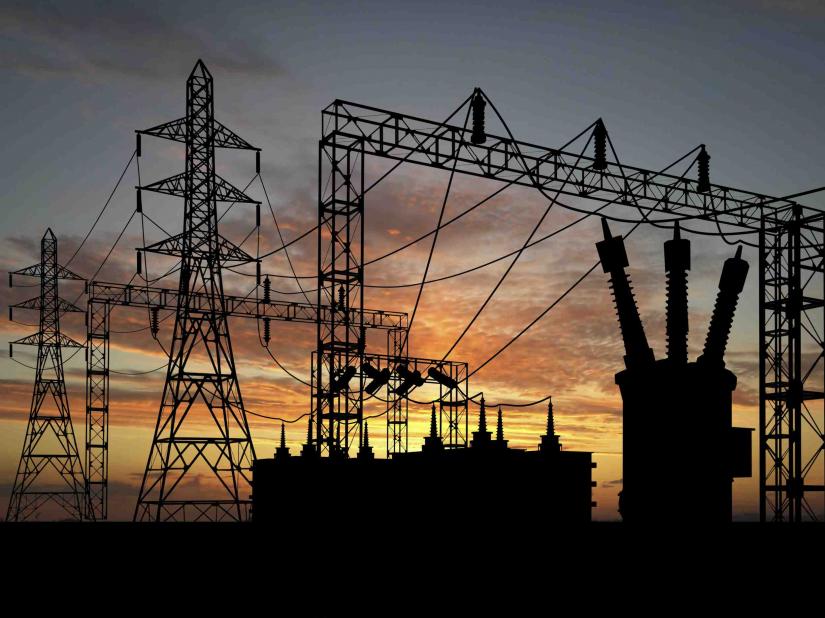 Sourcing primary energy will be the key challenge for power production in the coming future, according to the experts. They say the government hasn’t changed their policies regarding coal mining which will only increase dependency on foreign sources for power production and eventually lead to price hike of energy and electricity.
Sourcing primary energy will be the key challenge for power production in the coming future, according to the experts. They say the government hasn’t changed their policies regarding coal mining which will only increase dependency on foreign sources for power production and eventually lead to price hike of energy and electricity.
“The prime challenge is sourcing from the local energy supply. We must search the sea as well as the land at the same time. The government should immediately request for tenders in this regard,” said BRAC University Pro Vice-Chancellor Dr Tamim.
The energy expert also said the price of gas in the tenders must be reasonable.
Secondly, he said, “We must mine our own coal deposit. To meet rest of the demands we will have to import liquefied natural gas (LNG).” If necessary some coals can also be imported, added Tamim.
He, however, mentioned that the first priority should be surveying the sea.
“It’s been four years since we got our maritime boundary demarcated, but we couldn’t use it properly as yet,” he said.
According to Petrobangla the existing gas deposit in the country will support us for the next 7-8 years at best. With the gas deposit going low, the gas-based power plants has been shut down. For new gas-based power plants LNG must be imported from abroad. Starting from last year, the process of constructing LNG-run power plants started in both private and public sector.
State-owned North West Power Generation Company in collaboration with Germany’s Siemens, China’s CMC and UK’s BP is constructing a 3600MW LNG-run power plant at Payra. The Power Development Board (PDB) has signed a Memorandum of Understanding (MoU) with US company General Electric (GE) to construct another 3600MW LNG-run power plant. In the private sector, the Summit group inked their own MoU with GE to build 2400 MW plant while Unique Power signed a deal to construct another 1200MG power plant.
The North West Power Generation Company is going to construct another power plant at Khulna’s Rupsha.
The government is moving to LNG on the understanding that primary energy deposit is going down.
For each 100MW electricity production, a combined cycle power plant requires 20 million cubic feet of gas, which means the 11,600MW power plants, which are under contract, will need 580 million cubic feet on a daily basis. All of the 580 million cubic feet will need to be imported.
Bangladesh University of Engineering and Technology Professor Dr Izaz Hossain said, “We have failed to discover anything from the deep sea. We still have potential sites on our land. To speak the truth we are not serious to find gas.”
He however, added, “It’s a gamble really. You must spend money and take risks. Importing is lot easier compared to that.”
“If we don’t mine the two primary energy sources gas and coal, importing is the only other choice,” he said.
Dr Izaz further said, “Given the expenditure of import, the price will naturally go up, otherwise it must be subsidised.”
He said we should ensure two things if we must import LNG.
“One, we must ensure maximum LNG efficiency and the secondly our planning must be well thought of to prevent waste,” he said.
The existing power plants in the country require 2098 million cubic feet gas while 1166 million cubic feet gas is being supplied to them. When the gas deposit is used up, these power plants will need to import LNG to stay in business.
Energy expert Shamsul Alam said, “First we must develop our capacity. The entire energy supply expense should be cut down as much as possible and transparency must be ensured. Otherwise the production cost will go up.”
In such case, the government will have little choice but to raise the price of gas and electricity.
“So, this will be a big challenge for the government,” he said.
Currently the power plant constructions in progress include two 1320MW one 1200MW coal-run power plants. For 1MW to run 24 hours it requires 10 metric tonnes of coal which translates to 13,870,000 metric tonnes a year. According to this calculation the existing 3800MW plants will require 38,000 metric tonnes of coal every day.
Power, Energy and Mineral Resources Minister Nasrul Hamid said, “If we are to supply electricity in reasonable price, we must focus on our own coal deposit. The country’s energy sector is going to be entirely dependent on import. The upcoming big power plants will be run on imported coal and gas which will raise the expense as well.”
Speaking of scavenging the sea for oil and gas the minister said, “Initiatives in this regard must be taken immediately. The task of multi-client survey is currently halted at the orders of upstairs.”
He, however, stressed on the importance of survey, saying, “Unless we conduct the survey, foreign companies won’t be interested to come. If we can demonstrate the potential aspects upon surveying, the companies will be interested.”
“Otherwise, the energy sector will fall back,” he added.






